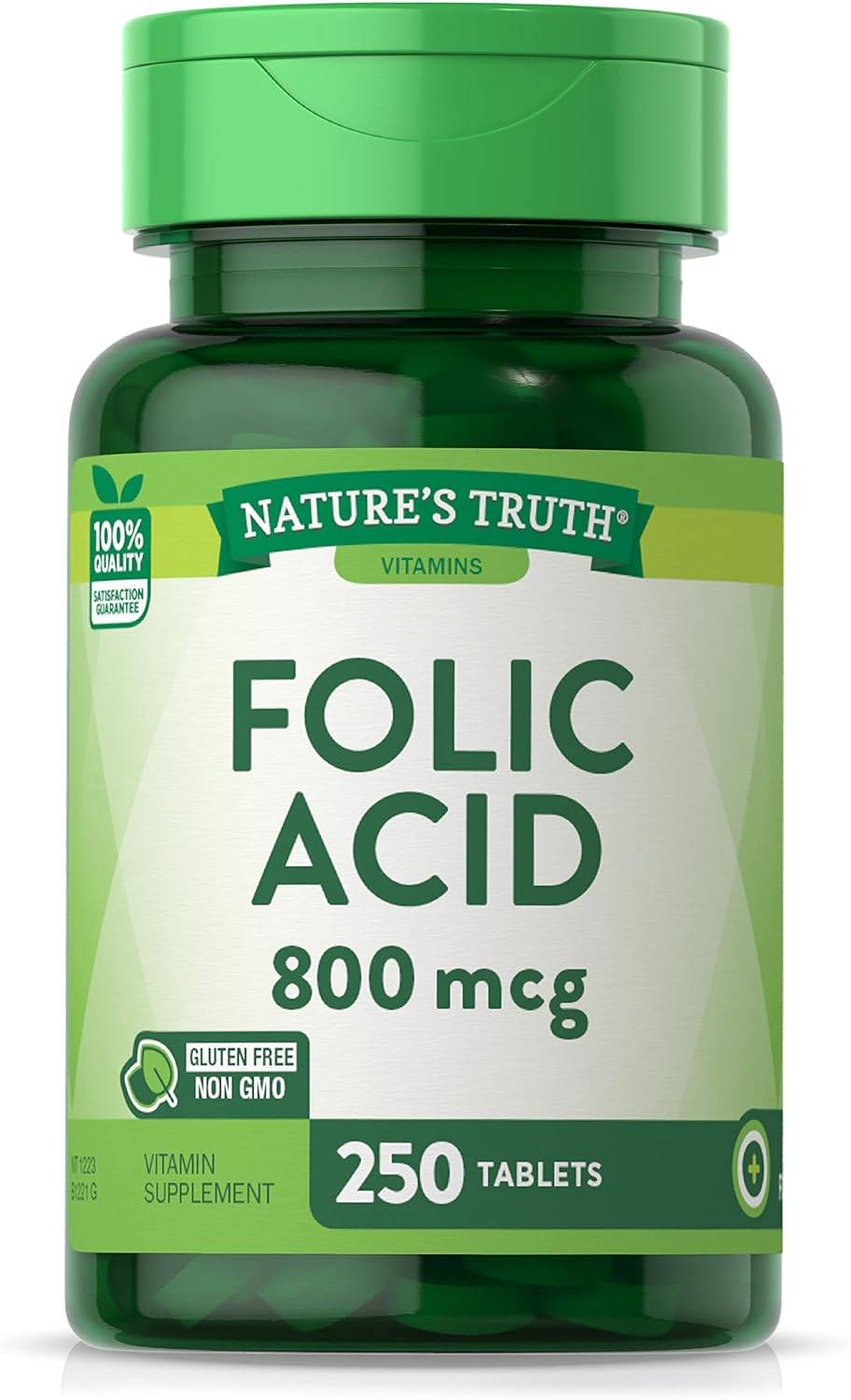Folic Acid Deficiency Anemia: Symptoms, Causes & Treatment
What are the symptoms of folic acid deficiency anemia?
Folic acid deficiency anemia is a type of anemia caused by a lack of folate, a B vitamin that is essential for the production of red blood cells. Folate is found in foods such as leafy green vegetables, fruits, and fortified cereals.
The symptoms of folic acid deficiency anemia can vary depending on the severity of the deficiency, but may include:
- Fatigue: This is one of the most common symptoms of anemia and is due to a lack of oxygen being carried to the body’s tissues.
- Weakness: Weakness can result from the body’s inability to produce enough red blood cells.
- Pale skin: Anemia can cause the skin to become pale due to a lack of red blood cells.
- Shortness of breath: This can occur when the body does not have enough red blood cells to carry oxygen to the lungs.
- Headache: Some people with anemia may experience headaches due to reduced oxygen flow to the brain.
- Dizziness or lightheadedness: This can occur when the brain does not receive enough oxygen.
- Heart palpitations: Anemia can cause the heart to beat faster to try to compensate for the lack of oxygen in the blood.
In addition to these symptoms, severe folate deficiency can lead to more serious complications, such as neural tube defects in infants born to mothers with low folate levels during pregnancy.
Folic acid deficiency anemia is usually treated with folic acid supplements, which can help restore folate levels in the body. It’s important to speak with a healthcare provider before starting any new supplements, as they can interact with other medications or conditions. Eating a diet rich in folate-containing foods can also help prevent and treat folic acid deficiency anemia.
What are the causes of folic acid deficiency anemia?
Folic acid deficiency anemia is caused by a lack of folate, a B vitamin that is essential for the production of red blood cells. There are several possible causes of folic acid deficiency anemia, including:
- Inadequate dietary intake: Not consuming enough foods that are rich in folate, such as leafy green vegetables, fruits, and fortified cereals, can lead to a deficiency.
- Malabsorption: Certain conditions that affect the absorption of nutrients in the intestines, such as celiac disease or inflammatory bowel disease (Crohn’s disease & ulcerative colitis), can lead to folic acid deficiency anemia.
- Alcoholism: Chronic alcohol consumption can interfere with the absorption of folate and increase the risk of deficiency.
- Pregnancy: Pregnant women have an increased need for folate, and a deficiency can develop if dietary intake is inadequate.
- Certain medications: Some medications, such as methotrexate, can interfere with the body’s ability to absorb or use folate.
- Medical conditions: Certain medical conditions, such as hemolytic anemia, can increase the body’s need for folate and lead to a deficiency.
- Increased demand: In some cases, the body’s need for folate may increase, such as during periods of rapid growth or recovery from illness.
It’s important to diagnose and treat folic acid deficiency anemia promptly, as it can lead to serious complications if left untreated. Treatment usually involves taking folic acid supplements to restore folate levels in the body, along with addressing any underlying causes of the deficiency.
What is the treatment for folic acid deficiency anemia?
The treatment for folic acid deficiency anemia involves replenishing folate levels in the body through dietary changes and supplementation. Here are some common treatment approaches:
- Folic acid supplements: The primary treatment for folic acid deficiency anemia is to take folic acid supplements. These are available over-the-counter in tablet form and are usually taken once a day. The dosage will depend on the severity of the deficiency and the underlying cause.
- Dietary changes: Increasing intake of foods rich in folate can also help improve folate levels. Foods high in folate include leafy green vegetables (such as spinach, kale, and broccoli), fruits (such as oranges and bananas), beans, peas, lentils, and fortified cereals and grains.
- Addressing underlying causes: If folic acid deficiency is due to a medical condition or medication, addressing the underlying cause may be necessary. For example, treating celiac disease or inflammatory bowel disease can improve folate absorption.
- Lifestyle changes: If alcohol consumption is a contributing factor, reducing or eliminating alcohol intake can help improve folate levels.
- Monitoring: Regular blood tests may be recommended to monitor folate levels and ensure that treatment is effective.
It’s important to consult with a healthcare provider before starting any new supplements or making significant changes to your diet, especially if you have other health conditions or are taking medications. They can provide guidance on the appropriate treatment for your specific situation.




